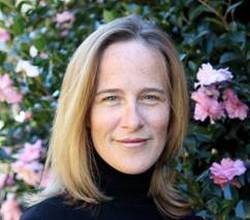
SPENCER D. WOOD
Spencer Wood is an Associate Professor of Sociology at Kansas State University where he has taught since 2007. He received his PhD in Sociology from the University of Wisconsin-Madison in 2006 where he minored in American History. He has published works broadly ranging on issues of democracy, the sociology of agriculture and food, rural community and development, the sociology of knowledge and science, social inequality, and racial inequality. He is a life member of the Rural Sociological Society and has a long-standing interest in rural communities. He is finishing a book that explores the links between Black landownership and the civil rights movement in Holmes County, Mississippi. This work was a key conceptual component of the recent documentary, Dirt and Deeds produced by David Schulman that aired on the Smithsonian Channel during the Spring of 2015. In addition, he is coauthoring, with Wayne Goins, a biography of blues legend, Jim O’Neal who stands at the center of the blues revival that began in the late 1960s. Spencer is a national expert on land tenure and especially Black land ownership. He serves on the board of the Black Farmers and Agriculturalists Association and is a member of the Executive Committee of the US Department of Agriculture’s North Central Region-Sustainable Agriculture Research and Education program where he chairs the technical review committee for the Research and Education competitive grants program. He is the Secretary for the Rural Sociological Society and also the new editor for the Society’s Rural Studies Series. At home he enjoys life with his wife Kit and two young boys ages 9 and 11.
Spencer Wood is an Associate Professor of Sociology at Kansas State University where he has taught since 2007. He received his PhD in Sociology from the University of Wisconsin-Madison in 2006 where he minored in American History. He has published works broadly ranging on issues of democracy, the sociology of agriculture and food, rural community and development, the sociology of knowledge and science, social inequality, and racial inequality. He is a life member of the Rural Sociological Society and has a long-standing interest in rural communities. He is finishing a book that explores the links between Black landownership and the civil rights movement in Holmes County, Mississippi. This work was a key conceptual component of the recent documentary, Dirt and Deeds produced by David Schulman that aired on the Smithsonian Channel during the Spring of 2015. In addition, he is coauthoring, with Wayne Goins, a biography of blues legend, Jim O’Neal who stands at the center of the blues revival that began in the late 1960s. Spencer is a national expert on land tenure and especially Black land ownership. He serves on the board of the Black Farmers and Agriculturalists Association and is a member of the Executive Committee of the US Department of Agriculture’s North Central Region-Sustainable Agriculture Research and Education program where he chairs the technical review committee for the Research and Education competitive grants program. He is the Secretary for the Rural Sociological Society and also the new editor for the Society’s Rural Studies Series. At home he enjoys life with his wife Kit and two young boys ages 9 and 11.

KATHERINE MELLEN CHARRON
Native North Carolinian Katherine Mellen Charron is an Associate Professor of History at North Carolina State University. She earned her B.A. in Literature at the University of North Carolina-Asheville, her M.A. in Afro-American Studies at the University of Wisconsin-Madison, and her Ph.D. in History at Yale University. Her teaching and research expertise includes 20th century U.S., African American, southern, and women's history. She is the author of the award winning Freedom's Teacher: The Life of Septima Clark (2009) and the co-editor of William Henry Singleton's Recollections of My Slavery Days (1999). Currently she is at work on two books: "Possibility Thinkers": Rural Black Women's Activism after 1965 and In the Shade of the Sunbelt: The Workers' Owned Sewing Company and the Pursuit of Economic Freedom. Both of these examine the political economy and African American activism in northeastern North Carolina.
Native North Carolinian Katherine Mellen Charron is an Associate Professor of History at North Carolina State University. She earned her B.A. in Literature at the University of North Carolina-Asheville, her M.A. in Afro-American Studies at the University of Wisconsin-Madison, and her Ph.D. in History at Yale University. Her teaching and research expertise includes 20th century U.S., African American, southern, and women's history. She is the author of the award winning Freedom's Teacher: The Life of Septima Clark (2009) and the co-editor of William Henry Singleton's Recollections of My Slavery Days (1999). Currently she is at work on two books: "Possibility Thinkers": Rural Black Women's Activism after 1965 and In the Shade of the Sunbelt: The Workers' Owned Sewing Company and the Pursuit of Economic Freedom. Both of these examine the political economy and African American activism in northeastern North Carolina.

MICHAEL STEWART, JR.
Michael Stewart, Jr. was born in New Orleans, LA to Michael and Deborah M. Stewart Sr. He had the pleasure of spending his summers and holidays on his Uncle Sonny’s farm in Tangipahoa Parish, LA throughout his childhood. By middle school, with his God given talent, he would take up the piano and saxophone and would later be accepted at the New Orleans Center for Creative Arts under the tootaledge of master teachers Edward and Kent Jordan, and Alvin Baptists. It was through these two experiences he developed an appreciation for rural and city life understanding that they both had a place. After graduating high school, as its most outstanding graduate, he went on to Washington, D.C. to study at the prestigious Howard University.
While at Howard, Michael earned numerous awards including the Trustee Scholarship, a Ronald E. McNair Fellowship, a Patricia Roberts Harris Fellowship and a Dacor-Bacon House Fellowship. He has studied aboard in South African and completed his senior thesis on economic development through micro-lending in developing countries. Upon graduating magna cum laude as the Most Outstanding Graduate in Economics, Michael was inducted into Phi Beta Kappa and earned dual degrees in Economics and Administration of Justice.
Having been afforded a Housing and Urban Development Graduate Fellowship, Michael decided to stay at Howard University to pursue a master’s degree in public administration and policy. Maintaining the theme of international development, he completed his Master’s these on Foreign Trade Zones as tools for local development. This research led him to realize that there were serious problems in the American economy regarding national growth and production and that trade alone presented a number of limitations. He received his Masters Degree in 2007.
Following this graduation, Michael began to shift his thinking from the international and national economies and began to opine the sources of power and prosperity within the black community. Never forgetting his rural experiences in Louisiana, he looked to agriculture as a source of economic and political development and decided to pursue a PhD to study this issue.
Currently, Michael is teaching Political Science at Howard University on a graduate assistantship and writing his dissertation on the Political Impacts of Social Movements. He is seeking to answer the question of “To what extent was the black farmer movement successful at achieving its objectives of eliminating discrimination at the USDA, seeking damages through the courts, and preventing black land loss?” His hypothesis is that the black farmer movement was marginally successful at achieving its objectives. By studying the movement using Kenneth Andrews' (2003) infrastructure model, his research seeks to demonstrate how unintended consequences of movement outcomes may have subverted its original goals and perhaps accelerated the decline of black farming and rural land ownership. This research looks at black farmer protests, its legal approach, and political system strategies as a repertoire of contention. It focuses on key figures, institutions, events, and organizations in order to build a more complete narrative.
Michael lives in Southern Maryland with his wife Ann Marie and their son Micah. They are expecting a second son in October 2016.
Michael Stewart, Jr. was born in New Orleans, LA to Michael and Deborah M. Stewart Sr. He had the pleasure of spending his summers and holidays on his Uncle Sonny’s farm in Tangipahoa Parish, LA throughout his childhood. By middle school, with his God given talent, he would take up the piano and saxophone and would later be accepted at the New Orleans Center for Creative Arts under the tootaledge of master teachers Edward and Kent Jordan, and Alvin Baptists. It was through these two experiences he developed an appreciation for rural and city life understanding that they both had a place. After graduating high school, as its most outstanding graduate, he went on to Washington, D.C. to study at the prestigious Howard University.
While at Howard, Michael earned numerous awards including the Trustee Scholarship, a Ronald E. McNair Fellowship, a Patricia Roberts Harris Fellowship and a Dacor-Bacon House Fellowship. He has studied aboard in South African and completed his senior thesis on economic development through micro-lending in developing countries. Upon graduating magna cum laude as the Most Outstanding Graduate in Economics, Michael was inducted into Phi Beta Kappa and earned dual degrees in Economics and Administration of Justice.
Having been afforded a Housing and Urban Development Graduate Fellowship, Michael decided to stay at Howard University to pursue a master’s degree in public administration and policy. Maintaining the theme of international development, he completed his Master’s these on Foreign Trade Zones as tools for local development. This research led him to realize that there were serious problems in the American economy regarding national growth and production and that trade alone presented a number of limitations. He received his Masters Degree in 2007.
Following this graduation, Michael began to shift his thinking from the international and national economies and began to opine the sources of power and prosperity within the black community. Never forgetting his rural experiences in Louisiana, he looked to agriculture as a source of economic and political development and decided to pursue a PhD to study this issue.
Currently, Michael is teaching Political Science at Howard University on a graduate assistantship and writing his dissertation on the Political Impacts of Social Movements. He is seeking to answer the question of “To what extent was the black farmer movement successful at achieving its objectives of eliminating discrimination at the USDA, seeking damages through the courts, and preventing black land loss?” His hypothesis is that the black farmer movement was marginally successful at achieving its objectives. By studying the movement using Kenneth Andrews' (2003) infrastructure model, his research seeks to demonstrate how unintended consequences of movement outcomes may have subverted its original goals and perhaps accelerated the decline of black farming and rural land ownership. This research looks at black farmer protests, its legal approach, and political system strategies as a repertoire of contention. It focuses on key figures, institutions, events, and organizations in order to build a more complete narrative.
Michael lives in Southern Maryland with his wife Ann Marie and their son Micah. They are expecting a second son in October 2016.
 RSS Feed
RSS Feed
